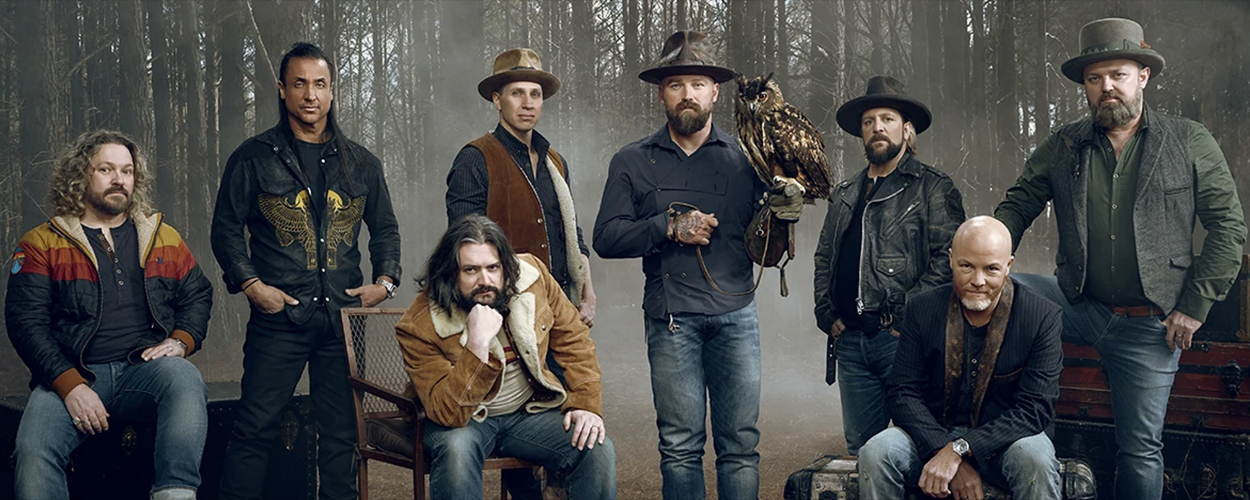This website uses cookies so that we can provide you with the best user experience possible. Cookie information is stored in your browser and performs functions such as recognising you when you return to our website and helping our team to understand which sections of the website you find most interesting and useful.
Artist News Business News Labels & Publishers Legal
Early investor in Zac Brown Band not due royalties on individual track sales, appeals court rules
By Chris Cooke | Published on Monday 8 March 2021

An early investor in country outfit the Zac Brown Band has failed to overturn a previous court ruling that said he was not due a cut of monies generated by the sale of individual tracks by the band. The Georgia Court Of Appeal has ruled that a lower court was right in concluding that a 2007 agreement only provided Braden Copeland with a royalty on album sales.
Copeland first lent money to Zac Brown and his then fledgling band in 2006, to help fund recording and touring costs. The following year a deal was done whereby, instead of Brown repaying the loans, Copeland would get a royalty right on the recordings he’d help fund, as well as cut of revenues from the band’s merchandise sales.
That deal had two sections to it. The first covered what royalties Copeland would be due while the Zac Brown Band was self-releasing their music, the second what would happen if the band got signed to a label. And that second section went into force the following year when the band signed with Warner’s Atlantic Records.
The first section – ie while the band was self-releasing – had royalty provisions for both album sales and the sale of individual tracks. However, the second section – ie the one that went in force once the Atlantic deal had been done – only talked about Copeland’s royalty share on album sales.
Which meant once the band was signed, Copeland only received royalties from the sale of albums, not individual tracks.
Of course, by that time the iTunes boom was underway and on-demand streaming was on the horizon, meaning that the music industry was shifting increasingly into a business where single tracks rather than albums were the bigger revenue generator.
Copeland first queried why he wasn’t getting royalties from single track sales a few years later, initially not getting any clear answers from the band’s accountants. However, he didn’t actually go legal until 2014 when a separate dispute began over unpaid merchandise royalties.
The merchandise element of the dispute was ultimately resolved, but the question remained over whether or not Copeland should be getting royalties from the sale of individual Zac Brown Band tracks. The band said that the 2007 agreement clearly only provided Copeland with a royalty on album sales. But he argued that the relevant section of that agreement was actually somewhat vague on that point, partly because there was reference to “other sales” later in the clause.
However, the lower court agreed with the band that the 2007 agreement only gave Copeland an album sales royalty, and ruled in their favour by summary judgement. Copeland then appealed, arguing that the relevant clause of the 2007 contract was sufficiently vague that a jury rather than a judge should have interpreted what the deal between him and the band actually said.
But the Georgia Court Of Appeal has now concurred with the lower court, saying that the 2007 agreement is pretty damn clear on what rights Copeland enjoys royalties-wise, and therefore the judge in the original case was well within their rights to rule by summary judgement.
The appeals court states: “It is undisputed that [Zac Brown Band] entered into a recording contract with Atlantic in October 2008. So, from that point forward, the method by which royalties would be shared between Copeland and [the band] was governed by subsection B of the September 2007 agreement and, specifically, paragraph two”.
“While paragraph two of subsection B explicitly provides the percentage Copeland was to be paid on sales of ‘records embodying the entire album'”, it goes on, “there is – in stark contrast to paragraph two of subsection A, which includes the term ‘individual recordings from the album’ – no mention of individual recordings, much less any method for calculating royalties for such sales. This omission is notable”.





